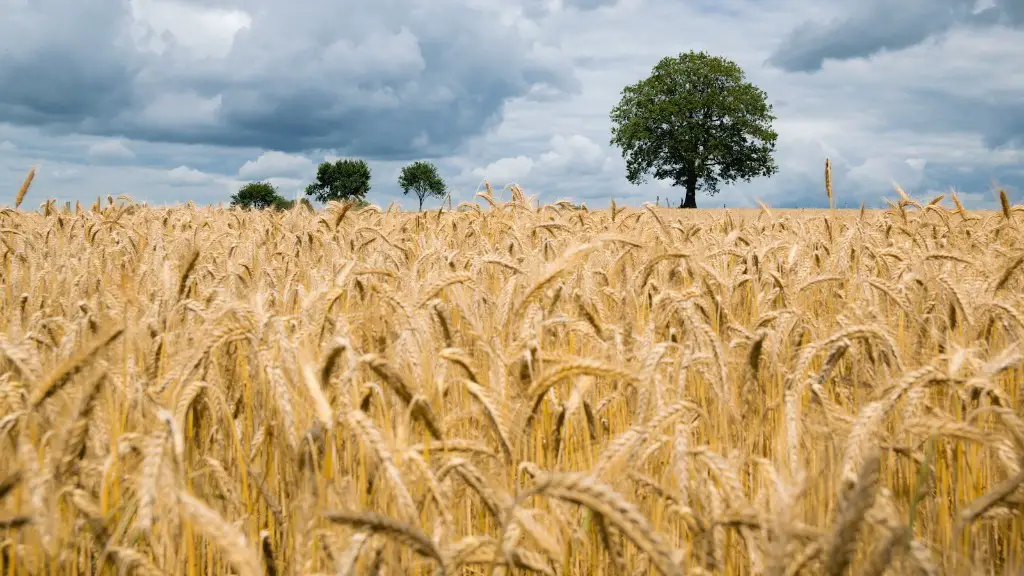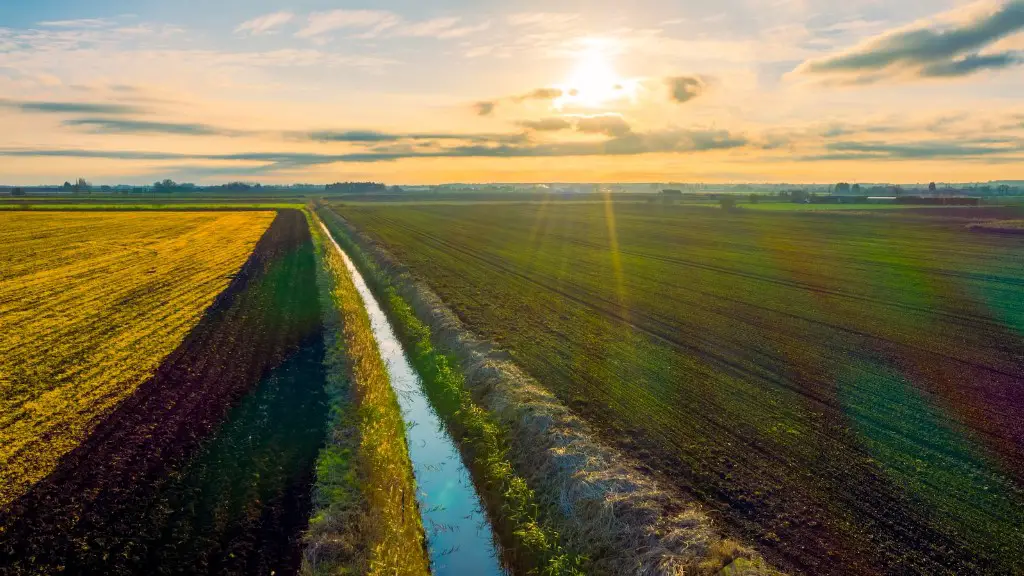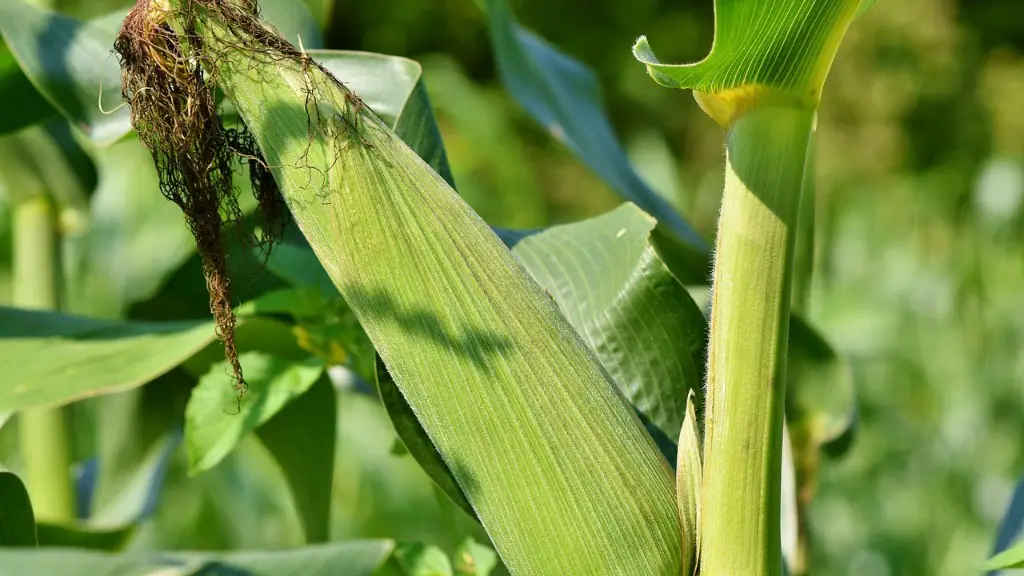In the eighteenth century, changes in agriculture led to the industrial revolution. New technologies and ideas about farming allowed for increased efficiency and productivity. This, in turn, led to population growth and the development of new industries. The industrial revolution changed the way people lived and worked, and it had a lasting impact on the world.
The industrial revolution was spurred by a number of factors, including the availability of resources, the appearance of new technology, and changes in agricultural methods. One of the key changes in agriculture was the increased use of crop rotation, which made it possible to grow more food on the same amount of land. This led to a increase in the food supply, which in turn led to a population increase. The growing population created a demand for goods and services, which spurred the development of industry and commerce.
How did Agricultural Revolution lead to Industrial Revolution?
The Second Agricultural Revolution was a period of significant agricultural innovation and development that took place during the 18th and early 19th centuries. During this time, new technologies and methods were developed that allowed for greater crop yields with fewer workers. This in turn allowed for larger cities to form and paved the way for the First Industrial Revolution.
The Agricultural Revolution was a major factor in the Industrial Revolution. Through innovations and inventions, the Agricultural Revolution changed the way farming worked and led to a decline in the intensity of work and the number of agricultural laborers needed. This in turn created new opportunities and industries, which helped spur the Industrial Revolution.
How did the Agricultural Revolution lead to the Industrial Revolution quizlet
The Agricultural Revolution led to the Industrial Revolution because when farming methods improved, food supplies increased, and so did England’s population. This led to increased demand for goods, and small farmers lost their land to enclosed farms and became factory workers.
The Agricultural Revolution of the 18th century was a pivotal moment in British history, as it paved the way for the Industrial Revolution. New farming techniques and improved livestock breeding led to amplified food production, which in turn allowed for a spike in population and increased health. The new farming techniques also led to an enclosure movement, which saw more and more land being converted for agricultural use. This had a profound impact on British society and economy, and set the stage for the Industrial Revolution.
Was the revolution in agriculture necessary to the Industrial Revolution?
The agricultural revolution was a pivotal moment in history that led to many other important changes. One of the most significant was the industrial revolution. The agricultural revolution improved farming techniques and led to greater availability of food. This in turn led to population growth and longer life expectancies. The industrial revolution would not have been possible without the agricultural revolution.
1. Acts as a source of capital to start small industries:
The provision of raw materials to agro-based industries provides a market for industrial goods, which in turn can act as a source of capital for the start-up of small businesses. This can help to create jobs and stimulate economic growth.
2. Acts as a source of employment:
The provision of raw materials to agro-based industries provides a market for industrial goods, which can in turn create employment opportunities. This can help to reduce poverty and improve living standards.
3. Stimulates economic growth:
The provision of raw materials to agro-based industries provides a market for industrial goods, which can help to stimulate economic growth. This can in turn lead to improved living standards and reduced poverty.
What were the causes of Industrial Revolution?
The Industrial Revolution was a period of time in the late 18th and early 19th centuries when there was a large and quick change in the way things were made. This time period is often described as a time when the world changed from a mostly rural and agricultural society to a more urban and industrial one. There are several reasons historians have identified for why this change took place.
One reason is the emergence of capitalism. This is an economic system where the means of production are privately owned and operated for profit. This system was different from the feudal system that had existed before, where land and resources were controlled by a small elite class. With capitalism, there was a new middle class that was growing and had more money to invest. This class was also more open to new ideas and change.
Another reason is European imperialism. This is when European countries started to expand their empires and control more territory around the world. With more territory, they had more resources and raw materials to bring back to Europe. They also had new markets to sell their goods to.
A third reason is the efforts to mine coal. Coal was a new source of energy that was used to power the new factories and machinery of the Industrial Revolution. This new source of
The Norfolk four-course rotation was a major development during the Agricultural Revolution and involved the use of turnips and clover to intensify agricultural output. This system was highly effective in increasing crop yields and helped to improve the overall efficiency of agricultural production.
What are 3 impacts from the Agricultural Revolution
The agricultural revolution had a number of consequences for humans. It has been linked to everything from societal inequality—a result of humans’ increased dependence on the land and fears of scarcity—to a decline in nutrition and a rise in infectious diseases contracted from domesticated animals.
The Industrial Revolution in Britain was fueled by a number of different factors. New inventions, access to raw materials, trade routes and partners, social changes, and a stable government all paved the way for Britain to become an industry-driven country. Each of these factors played a role in Britain’s transformation into an industrial powerhouse.
What 5 factors caused the Industrial Revolution?
historians believe there are around six factors that caused the Industrial Revolution. These six factors were population, empire, agriculture, factories, power and transport. Each of these factors played a role in the great change that occurred during the Industrial Revolution.
The Agricultural Revolution allowed for the production of food to keep up with the growing population. This, in turn, led to a rise in population as people could depend on a more reliable food source. Great Britain’s advantages, such as its stable government, access to resources, and skilled labor force, allowed for the country to industrialize at a faster pace than other nations. This, in turn, led to other countries following suit in an attempt to keep up with Great Britain’s booming economy. The Industrial Revolution had a lasting impact on the world and continues to influence our lives today.
What was one major result of the agricultural and Industrial Revolution
The Industrial Revolution was a time of great change for the economy. It shifted from an agrarian economy, where products were made by hand, to a manufacturing economy, where products were made by machines. This led to increased production and efficiency, lower prices, more goods, improved wages, and migration from rural areas to urban areas.
The Agricultural Revolution was a period of time where new crops and methods of crop rotation were being experimented with. This allowed for the soil to replenish nutrients, leading to stronger crops and better agricultural output. Advancements in irrigation and drainage further increased productivity.
What were 3 positive changes from the Agricultural Revolution?
The Second Agricultural Revolution had a profound impact on society as a whole. It led to advances in food production, which in turn led to better diets and longer life spans. As population increased, so did the pool for workers in industry. This increased the productivity of industry and allowed for the growth of cities and the rise of the middle class. The Agricultural Revolution also led to the development of new technologies and the spread of knowledge. This allowed for the growth of trade and commerce and the rise of new civilizations.
Agricultural technology has come a long way in the last few decades. New advances in weed and insect resistance, genetically engineered crops and more advanced insecticides have made it possible for farmers to produce more food with less effort. This has been a boon for the agricultural industry, and has helped to feed the world’s growing population.
Warp Up
The rise of industry depended on the availability of resources like water power, coal, and iron. The growth of British agriculture in the eighteenth century boosted the demand for these materials, as well as for labor. The expansion of the British empire also played a role, as it provided new markets for British goods and new sources of raw materials. The industrial revolution began in Britain in the late eighteenth century and spread to other parts of Europe and North America in the nineteenth century.
The industrial revolution was a time of great change for the world. One of the biggest changes was the way that people farm. Before the industrial revolution, people farmed by using animals and manual labor. This was a very time-consuming and labor-intensive process. during the industrial revolution, new machines were invented that could do the work of animals and people much faster. This led to a lot of unemployed farm workers. These workers went to the cities to find work in the new factories that were popping up. The industrial revolution changed the way the world farmed and led to a lot of other changes as well.





